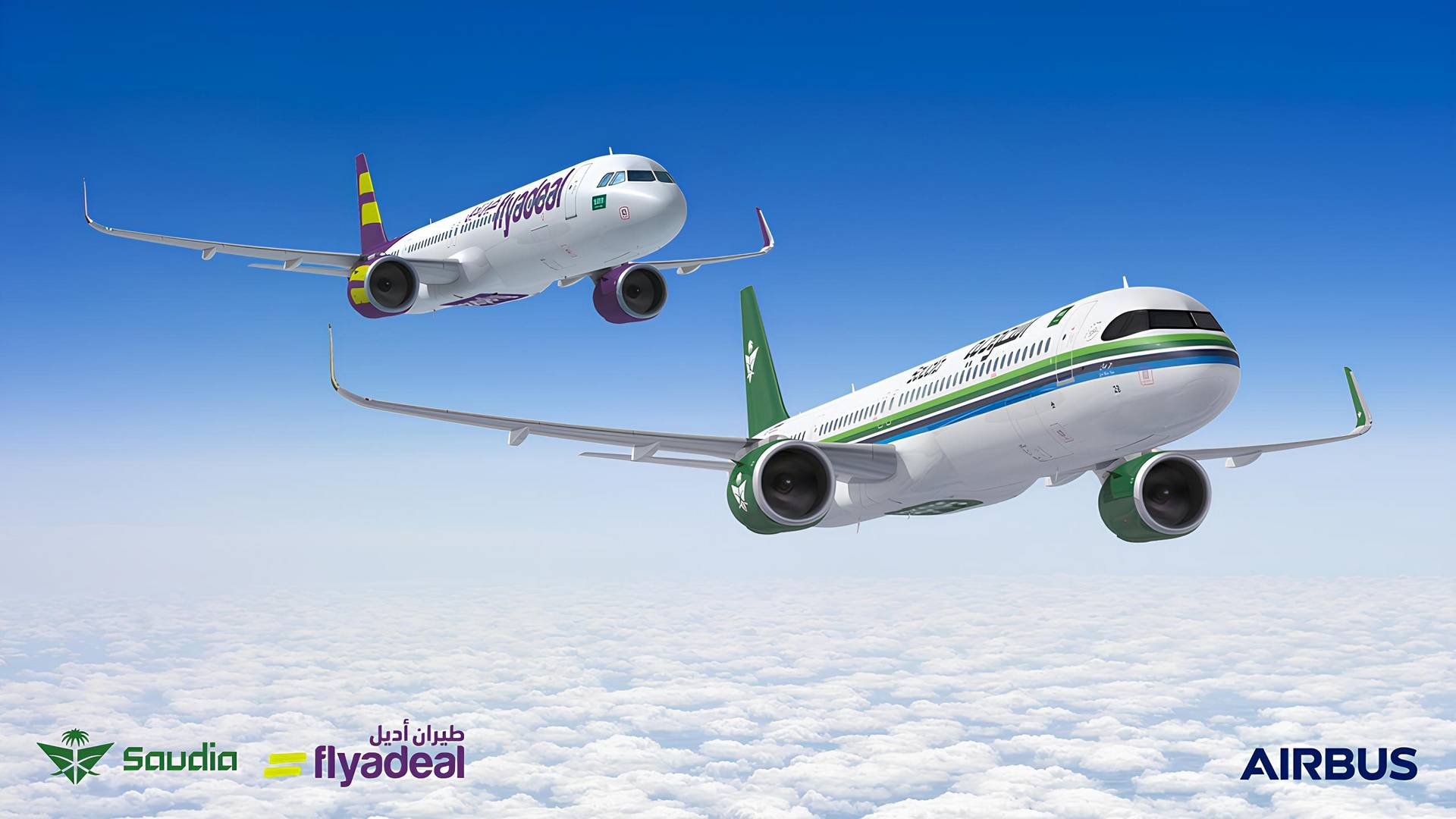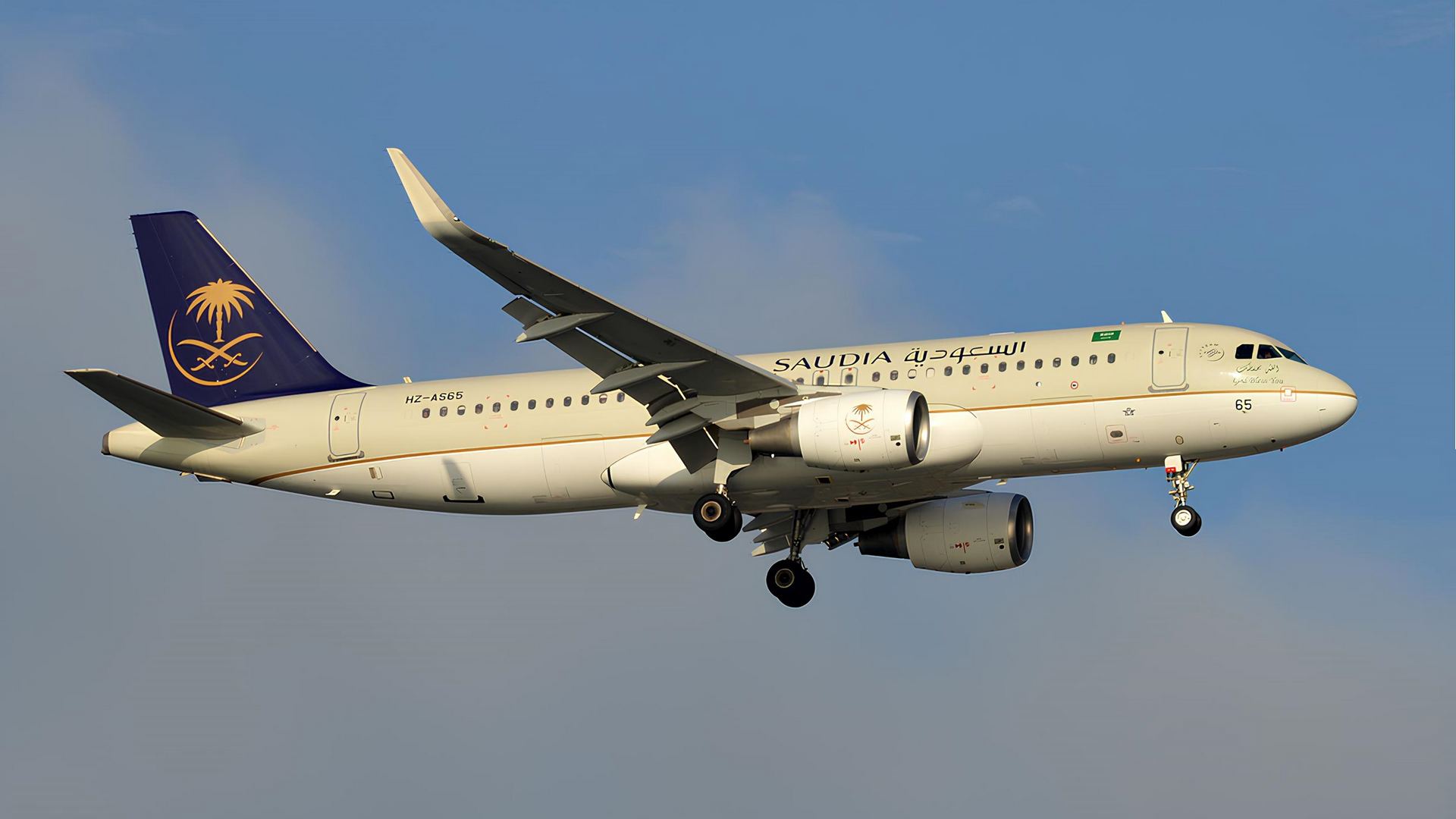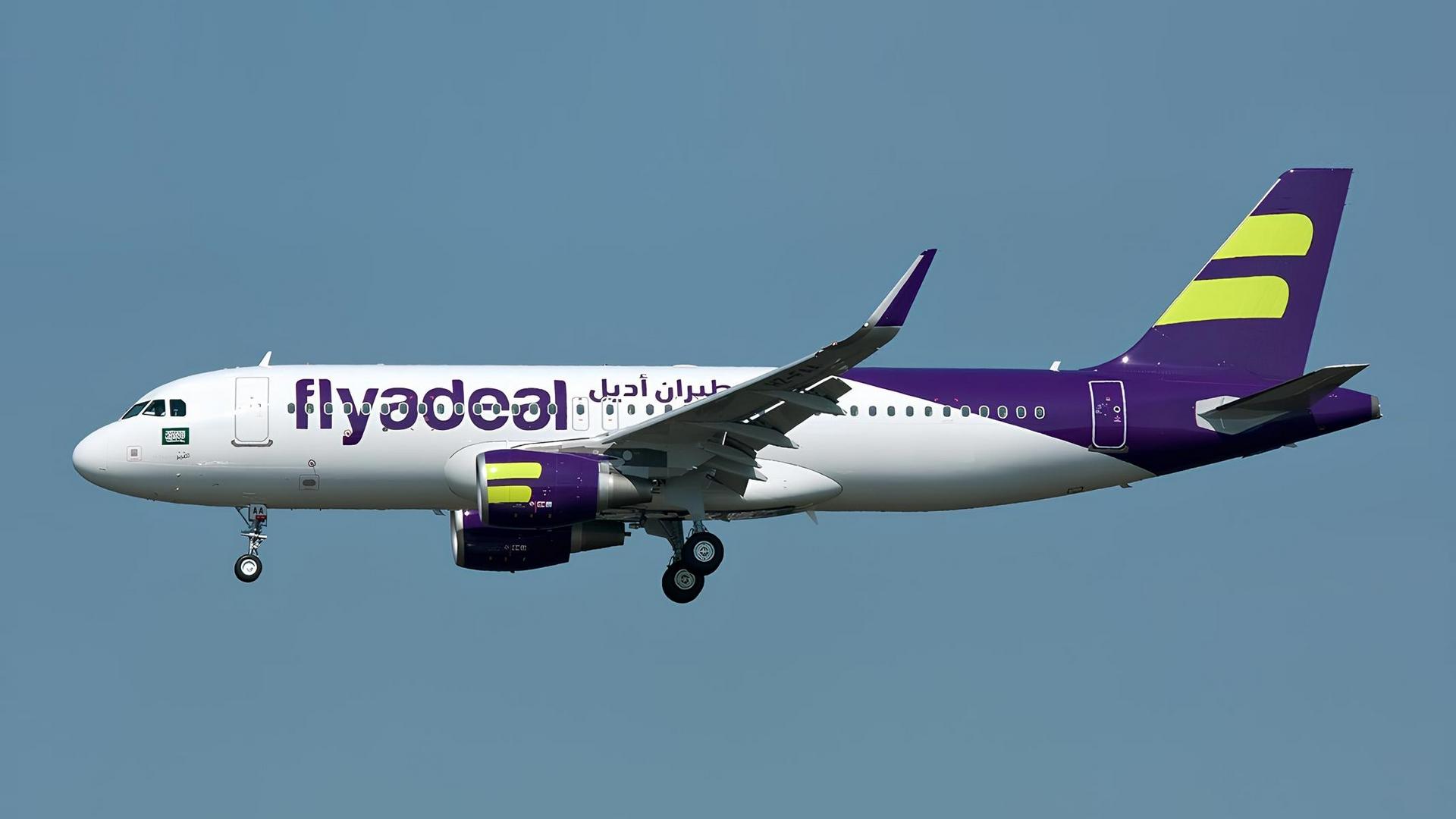The Saudia Airlines group agreed to buy 105 narrowbody aircraft from Airbus, after strong rumors that the deal had been set to go to Boeing.
On the face of it, this deal doesn’t look like a Boeing loss. Saudia (aka Saudi Arabian Airlines) has a fleet of Boeing widebodies. But its existing narrowbody fleet has been all-Airbus, since 2007, when it retired its last 737-200s.

However, late last year Saudia was reportedly in talks with Boeing, for a large order for the 737 MAX. Saudia already had orders for (and taken delivery of) A320neo-family aircraft. But the airline has had a strategy of splitting its orders between the two manufacturers.
In any case, the Boeing order didn’t materialize. Saudia itself is getting 54 more Airbus A321neos. Its subsidiary Flyadeal will get 39 A321neos, plus 12 A320neos. This increases the Airbus order backlog of the Saudia Group to 144 A320neo-family aircraft.

Saudia Says No To Boeing?
The new order represents a large expansion for the airline group. Saudia itself currently operates 59 narrowbodies of the A320 family, including its already delivered “neo” variants. Subsidiary Flyadeal has 32 A320-family jets.
Unofficial estimates value the contract at $19 billion. Deliveries of the aircraft in this order will commence in the first quarter of 2026, and end in 2032. Delivery slots for Airbus narrowbodies have been quite hard to find in recent years. But Airbus has had some delivery deferrals from some customers, like Spirit.

It is delivery delays for Airbus narrowbodies that previously pushed some customers, possibly including Saudia, to look at Boeing instead. However, Boeing’s issues with the 737 MAX in recent months could have changed this balance.
There are some suggestions that there may also be political reasons why Saudia eventually didn’t choose to buy American, following the latest middle-east conflict. In any case, winning over an existing Airbus narrowbody operator would have been a major win and a vote for confidence for Boeing, at a critical time. But it wasn’t to be – for now.



